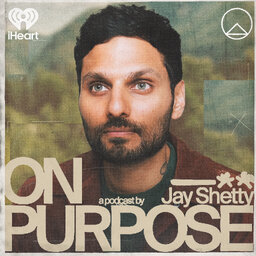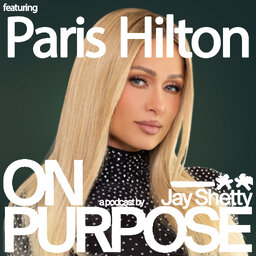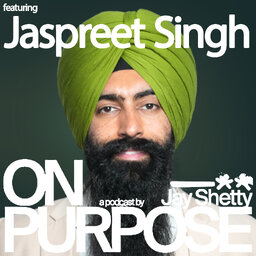Naveen Jain ON: Why Understanding Your Genes Can Greatly Improve Your Health & Questions You Should Ask Yourself Before Making an Important Decision
Today, I sit down with Naveen Jain to talk about how to thrive in your work space. Naveen shares his views and thoughts on why the people you surround yourself with play an important role in your success, the importance of cultivating curiosity for learning and to find solutions, and how your actions, no matter how small or big, can significantly impact everyone else.
Naveen Jain is an entrepreneur and philanthropist. Jain has a diverse business background and has founded several successful companies in different industries. Beyond his entrepreneurial endeavors, he is passionate about using technology to address global challenges. He believes in the power of innovation, entrepreneurship, and moonshot thinking to solve pressing problems in fields such as healthcare, education, and the environment.
You can order my new book 8 RULES OF LOVE at 8rulesoflove.com or at a retail store near you. You can also get the chance to see me live on my first ever world tour. This is a 90 minute interactive show where I will take you on a journey of finding, keeping and even letting go of love. Head to jayshettytour.com and find out if I'll be in a city near you. Thank you so much for all your support - I hope to see you soon.
What We Discuss:
- 00:00 Intro
- 00:16 The three things we need to ask ourselves in order to find different solutions to a problem
- 14:04 Naveen explains why you need to surround yourself with people who will push you to become better
- 18:41 “Your imagination is the only thing that limits what you can do.”
- 24:07 How can we cultivate curiosity in the young minds and make the world a better place?
- 37:09 This is what happens when you spend your time and energy on things that you don’t enjoy doing.
- 45:35 Continuous exposure many ideas open many doors for us to find our passion and learn more
- 56:05 Give children as many dots as they can have so someday they are able to connect these dots and create their own canvas.”
Episode Resources
- Naveen Jain | Website
- Naveen Jain | Twitter
- Naveen Jain | Instagram
- Naveen Jain | Facebook
- Naveen Jain | Books
- https://www.evvy.com/
- https://www.viome.com/
Want to be a Jay Shetty Certified Life Coach? Get the Digital Guide and Workbook from Jay Shetty https://jayshettypurpose.com/fb-getting-started-as-a-life-coach-podcast/
In 1 playlist(s)
On Purpose with Jay Shetty
My name is Jay Shetty, and my purpose is to make wisdom go viral. I’m fortunate to have fascinating …Social links
Follow podcast
Recent clips

How to Fall in Love Without Losing Yourself This Year (5 Rules to Avoid Getting Stuck in the Wrong Relationship)
21:47

PARIS HILTON: The REAL Story Beyond the Headlines, Fame, Misconceptions, and The Journey to FINALLY Reclaim Her Narrative
1:07:01

Jaspreet Singh: Why Most People Stay Broke (Follow THIS 7-Step System to FINALLY Stop Living Paycheck-to-Paycheck!)
1:19:03
 On Purpose with Jay Shetty
On Purpose with Jay Shetty